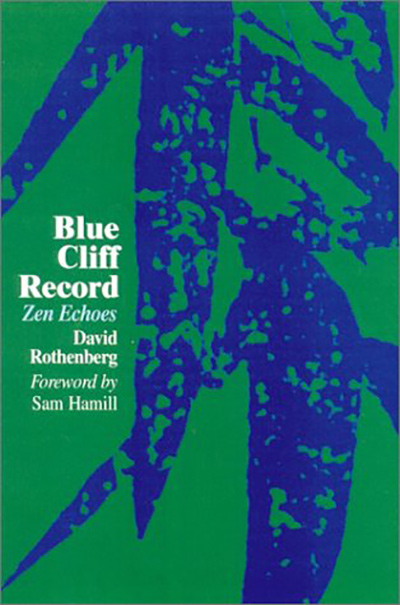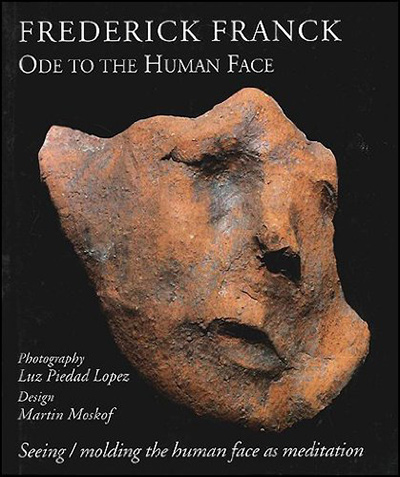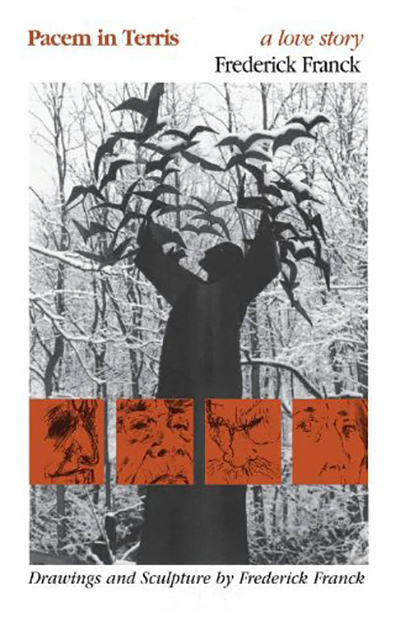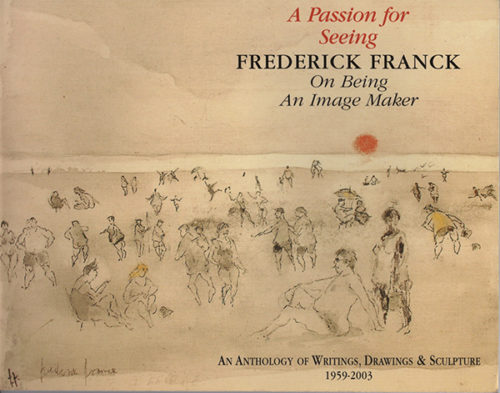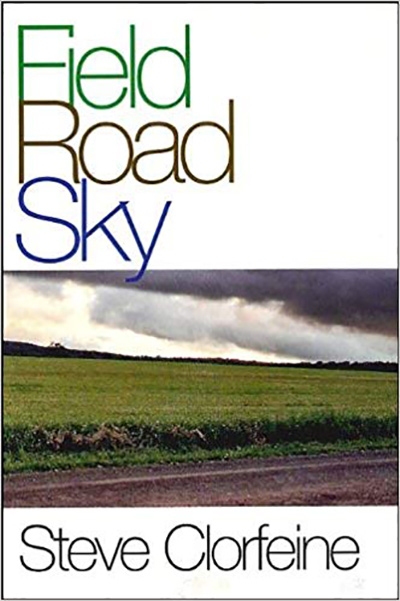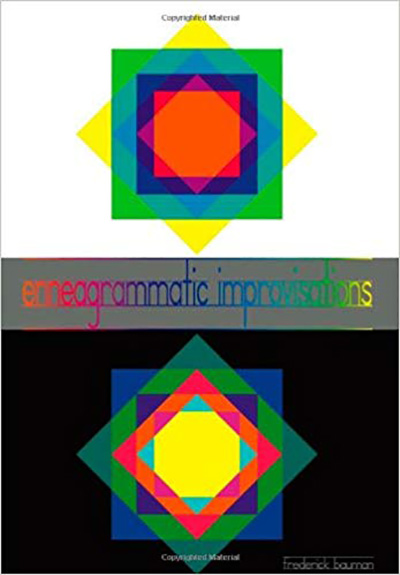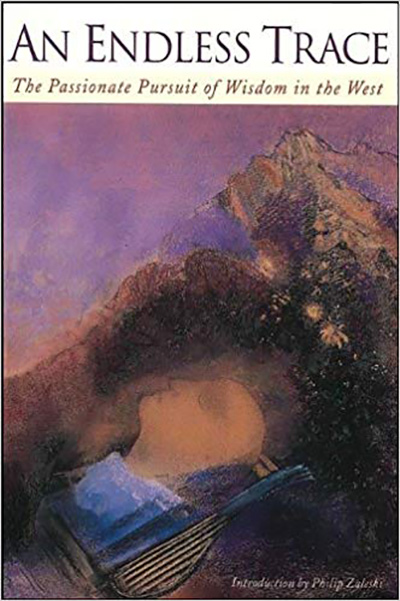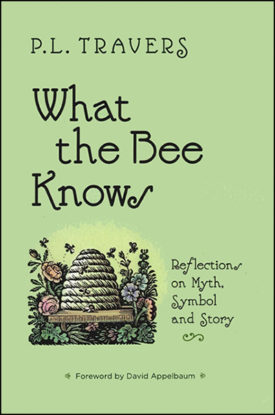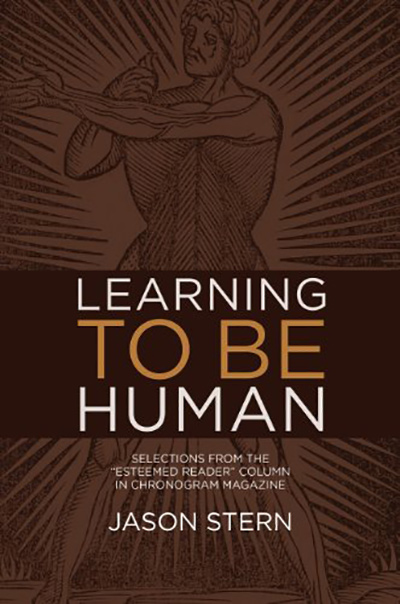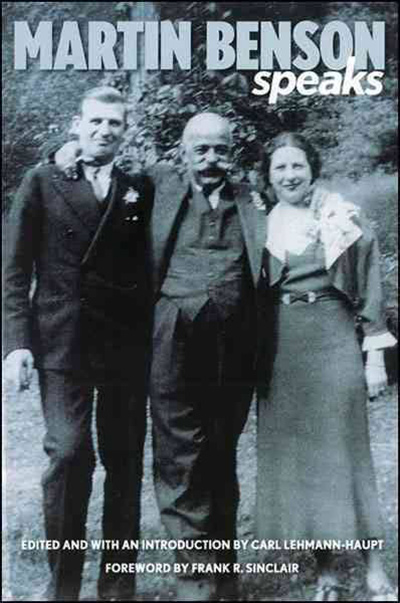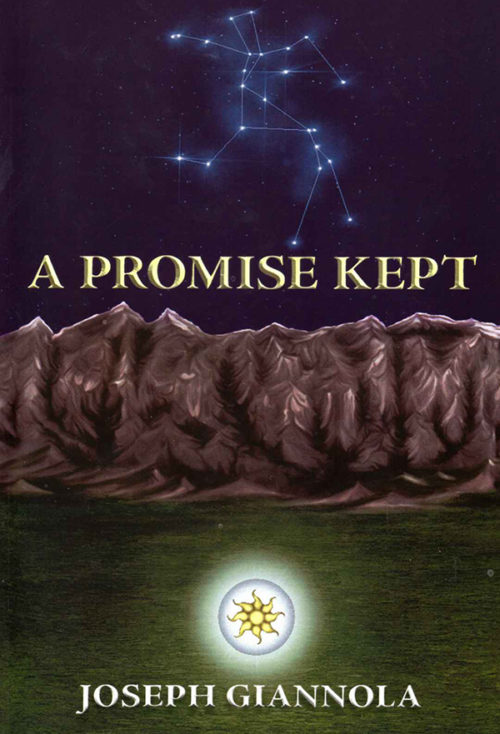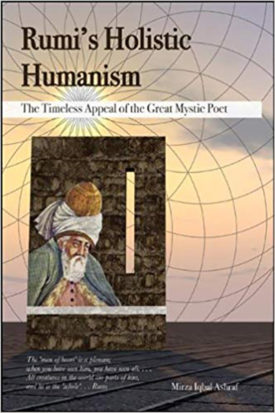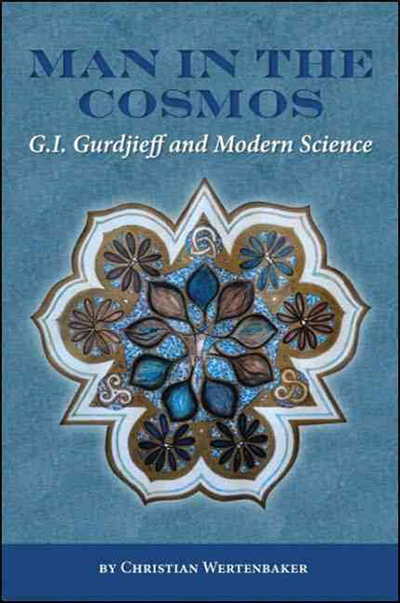-
Most of these “fragments” were written by Jack Cain in group poetry sessions he was facilitating. The sessions were designed to be an exploration of the distinction between material arising from the subconscious mind as opposed to material arising from our ordinary consciousness. This direction came from G.I. Gurdjieff’s startling and impertinent statement that our subconscious is our “real” consciousness and our ordinary waking state of consciousness is “fictitious.” The group writing session would begin in quiet, participants would watch what arose and then write from that. Once everyone was done, the results would be read and there would be an exchange on what had been observed. These exchanges helped those present understand that we are all much more deeply connected than we realize.
-
Zen Echoes
"It is astonishing how thousand-year-old riddles are brought here to evocative poetic life. David Rothenberg converts them into contemporary verbal music, an arcanum, a profound secret, a mystery without intellectual solution." —Frederick Franck, author of The Zen of Seeing, The Buddha Eye, and other books Much as Coleman Barks breathed new life into the work of the great Sufi poet Rumi and reached the hearts and minds of contemporary readers, David Rothenberg now brings us vividly poetic new versions of the enigmatic koans and riddles from the classic Zen Buddhist text, the Blue Cliff Record. Blue Cliff Record: Zen Echoes is an accessible contemporary distillation of this twelfth-century treasure of Zen Buddhism, a lively feast of words and images designed to stretch and open the mind. With a foreword by poet, author, and translator Sam Hamill. "David Rothenberg's adaptation of Blue Cliff Record is that rare thing, a work of art that is also useful. It is as bracing as a dive into a cold spring--a wake up call from reality--the splendor of what is." —Mark Rudman, winner of the National Book Critics' Circle Award for Poetry and author of Rider "What is unique and wondrous about these poetic responses to the Blue Cliff Record is that here philosophy, spiritual practice and creativity are fused and whole. Each poem remarkably celebrates the Zen past and at the same time builds the foundation for a new interpretation that helps imagine how we, here and now, can live the Dharma on these shores." —Charles Johnson, winner of the National Book Award in fiction for Middle Passage2001 | 128 pages with 12 illustrations
-
Seeing/Molding the Human Face as Meditation In this compact, visually powerful book, author and artist Frederick Franck offers his contemplations on the mystery of the human face. Inspired by the rediscovery of a series of small clay faces, which he had molded and fired over the course of many years, Franck reflects on the deeper meaning of what it means to be truly human. Paired with texts from great wisdom teachers such as Hui Neng, Dogen, and Angelius Silesius, as well as Franck's own words, each evocative, archetypal face conveys the frailties of the ego-driven personality as well as the eternal essence of that which lies hidden behind the mask. With a bold design featuring over forty striking black and white photographs by Luz Piedad Lopez, this book speaks clearly to the questions that have preoccupied many seekers over the centuries: Who am I? Who are you? "Drawing, modeling faces, I seem to touch my model's ancestral, even its pre-human, hominid past, that first hint of human Existence--of just being here, that Mystery of mysteries. Buddhism speaks in a minor key of Sunyata, Absolute Nothingness, an Emptiness, however, replete with potentialities, referred to in more positive terms as Tathata, Suchness. "Behind each personality, each mask, there is the irreducible Reality of Sunyata, of that all-transcending Emptiness or Nothingness from which all that is emerges in its Being/Non-Being."
—from Ode to the Human Face
2004 | 98 pages
-
A Love Story By Frederick Franck "Here insights that clash in the chill of the brain seem to fuse easily in the warmth of the heart and beget a religious orientation to life as such, to Existence as the Mystery of Mysteries."
—from Pacem in Terris: a love story
Thirty years ago, Frederick Franck, author of The Zen of Seeing, Angelus Silesius, and a dozen other books, began work on a property he and his wife Claske had acquired in Warwick, New York. Originals of his world-renowned sculptures found their home on the grounds. The sacred nature of his artistry has attracted the attention of pilgrims of all walks in life and from all continents. Pacem in Terris has become the meeting place of many wisdom traditions, all in search of what Franck calls "the all-too-human." In Pacem in Terris: a love story, Franck relates the remarkable history of his monumental undertaking—to create a sacred site open to peoples of the world—from its impoverished beginnings to its triumphal present. The material obstacles and artistic challenges of this true story of human love remind us of the forgotten power of a personal search for meaning and the extraordinary help and recognition that are drawn to a simply human effort. "Franck's words are thrilling, especially as evidence of his vocation as one who brings things together.... When Pacem in Terris was opened in 1966, Franck wrote: 'May the spirit soar and make us humans see our unity.' By purchasing, reading, and sharing this paperback treasure, you are doing just that!"—Spirituality and Health
"For the pilgrim in each of us who would journey into Eastern and Western spiritual traditions to chart a path in this troubled time.... Wise, witty, compassionate observations jolt us awake to the wealth of our planetary heritage."—Joanna Macy, author of Widening Circles and World as Lover, World as Self
2000. 128 pages
-
Out of stock"When at seventeen I had become a medical student in Holland, my eye fell on a slim volume that carried in large yellow characters the title 'ZEN.' This was in 1926, when Zen was still unknown in the West. "Zen has been to me that which brings us into intimate contact with the world around us and, at the same time, with ourselves. This book, a revised edition of Echoes from the Bottomless Well, came to me at a moment of deep crisis. "The quotations from the Zen writings and words of the great Zen masters, as well as some sayings from the Gospels, were not culled from printed pages. They welled up irresistibly from some eight decades of reflection and meditation from deep down, sometimes in words, sometimes at first in images, for I am by nature not a philosopher but an image-maker. The images that came so compellingly, witness to the experience of Zen as it affected my life."
—Frederick Franck
Pairing Frederick Franck's unconventional calligraphic drawings with transformative words of wisdom from the Zen and Christian traditions, A Zen Book of Hours offers the seeds for many a heartfelt meditation on the innermost workings of life in and around ourselves.2003 | 80 pages
-
Out of stockOn Being an Image-maker A Passion for Seeing gathers a rare feast of stories, impressions, and observations from a writer and artist known for his keen honesty, great heart, and passionate pursuit of the question: what does it mean to be human? Carefully chosen excerpts from many of his books and over a dozen new drawings are among the treasures included. In A Passion for Seeing, Frederick Franck establishes himself as a prime witness to the twentieth century. Read in this anthology the best of Franck's observations. From the onset of World War Two and his work with Dr. Albert Schweitzer to private audiences with Pope John XXIII and the Dalai Lama, from the streets of New York City to the ancient temples of Japan, follow his art and thought as they illuminate our world. "Franck...looks deep into the human heart and what he finds there is the priceless treasure of the sacred reality: a discovery and message so crucial to contemporary humanity."
—Georg Feuerstein, author of The Yoga Tradition
"Dialogues with the spiritual masters of the East show us the possibility of a universal ecumenism that is rarely experienced."—Matthew Fox, author of Original Blessing
"For the pilgrim in each of us who would journey into Eastern or Western spiritual traditions to chart a path in this troubled time...."—Joanna Macy, author of World as Lover, World as Self
"He simply sees things most people do not...."—Harvey Cox, author of The Secular City
2003 | 112 pages
-
Praise for Steve Clorfeine's work: "I found myself carried by his words...often an unremarkable or extravagantly beautiful list of things and events was made brilliant by the attention paid to their existence."
—Parabola: Myth, Tradition and the Search for Meaning
"Clorfeine's day to day experiences read like a series of prose haikus...there is a clarity in his writing...a habit of seeing the ordinary and the extraordinary, the marvelous in the mundane..."—Woodstock Times
2006 | 90 pages
-
The poems in this volume are experimental in nature. They came out of a study of the enneagram—a symbol best described in P. D. Ouspensky's In Search of the Miraculous. While looking for a way to experience the laws expressed in the enneagram, Frederick Bauman devised a poetic form of nine verses of three lines each. The poems are presented in the order written and then the stanzas are rearranged in the order 9, 3, 6, 1, 4, 2, 8, 5, 7. Readers interested in the enneagram are referred to Mr. Ouspensky's book and the “Holy Planet Purgatory” chapter of G. I. Gurdjieff's Beelzebub's Tales to His Grandson, which does not mention the enneagram but discusses the laws it symbolizes.
2007 | 110 pages
-
Out of stockThe Passionate Pursuit of Wisdom in the West Two powerful motives weave beneath the surface of our spiritual history: the desire to know and the desire to love. The secret history of the West is the story of saints, mystics, alchemists, poets, and philosophers trying to unite these two streams and celebrate—in the world and in their own persons—the sacred marriage of Logos and Sophia, Word and Wisdom. This book, an impressionistic history of the Western spiritual tradition, follows the traces—from ancient Greece into modern times—of those who sought to know the world and themselves, while realizing that they must overcome themselves to love the world and each other. There are chapters on Pythagoras, Sophia, Celtic Christianity, the Troubadours, the Grail, the Rose Cross, Renaissance spirituality, Romanticism, nineteenth-century occultism, and twentieth-century esotericism. Inspirational interludes place the whole within an atmosphere of Christian mysticism. Tracking this endless trace of our evolving relationship with each other, God, and nature, we begin to understand how human consciousness has changed and evolved and what humanity's task is now. With an introduction by Philip Zaleski, editor of The Best Spiritual Writing Series.
2003 | 303 pages
-
Out of stockReflections on Myth, Symbol, and Story "The Sphinx, the Pyramids, the stone temples are, all of them, ultimately, as flimsy as London Bridge; our cities but tents set up in the cosmos. We pass. But what the bee knows, the wisdom that sustains our passing life—however much we deny or ignore it—that for ever remains."
—P. L. Travers
2010 | 303 pages
-
Out of stock"This text must be a mirror. It must reflect the reader back to herself, so that the reader acquires a vision. It requires a power greater than the text to allow the reader to see with clarity. It is the additional matter of awakening the heart. Ultimately, a search is sustained by strong feeling for the adventure of being in light of one's inadequacy to venture forth."
—from the Foreword
A compilation of Stern’s columns from Chronogram in which he explores the intriguing concept of regional culture in its full meaning. Learning to be Human is a book about striving. The chapters are culled from a regular column in the Hudson Valley’s Chronogram magazine, over a thirteen year span. It is an inner account of a search for meaning in the light of the teachings of G. I. Gurdjieff, as well as Sufism, Buddhism, Taoism, and Judaism, in the context of the life of a seeker, lover, father, householder, athlete, publisher, and entrepreneur. The essays are a record of insights and experiences gleaned in light of a fundamental admonition: Know Thyself. What makes the book unique is its consistent return to the teachings of G. I. Gurdjieff as a key to unlocking not only the meaning of the world’s great traditions, but also the experiences of the life of a man in the world, spanning the ages of 25 to 40 years old. The style of writing varies from deeply personal, almost confessional, first-person narratives, to poetic observations, to pedagogic expositions of philosophical and religious ideas. There is a clear political point of view, but always tempered by an emphasis on self-knowledge and the reflection of the activities of people in the world in ourselves. Jason Stern is the publisher and co-founder of Chronogram. Jason Stern's meditative but acute reflections on current issues and community events seem to echo the insights of Emerson and Thoreau, viewing the cosmos through the details of current life, looking with humour on the vagaries of our minds and customs. His centering in the ideas of Gurdjieff, the Armenian Greek who startled people a hundred years ago now by his cutting insight into human folly, gives Jason an edge that puts him in a special category. But here is no jargon or harsh judgment. Here is a human voice, sparkling with warmth and softened in bemusement, a voice-over to the movie of human life he sees just outside his window. You can dip in almost anywhere and find yourself smiling, no matter how serious the topic. Such a compassionate observer is surely a reminder of our own conscience and compassion.—Anthony Blake
2010 | 270 pages
-
Jack of all trades, seaman, and spiritual seeker, Martin Benson was gatekeeper for G.I. Gurdjieff at Fountainbleau. He shares intimacies of his life in these captivating memoirs.
2011 | 260 pages
-
Out of stockA Promise Kept is the story of Jared's mythic quest to fulfill an ancient promise and save his people from endless war and spiritual poverty. A thrilling adventure and a tale of our time.
2011 | 280 pages
-
Rumi’s Holistic Humanism: The Timeless Appeal of the Great Mystic Poet, presents the mystical poet's passionate conviction that "love is the strongest unifying force," and that its force is present everywhere and in everything. It may even encourage some to study the extraordinary work of Rumi that so often opens the heart of its adepts. For Rumi peace is the natural quest for a "whole person," and the human being's inclination to it arises from a natural universal order. In humankind's fight to root out conflict, violence and war, Rumi's holistic view of unconditional love may prove one of our best friends. Rumi's holistic approach to the phenomena of humankind is that the perimeters between the self and the universe are mitigated to the extent that the material body becomes indistinct of its typical cultural identity. After so many centuries, Rumi today is as he was yesterday, a living icon of Unity and Love for the whole of mankind. Ashraf's holistic weaving of the many spiritual, philosophical, rational, scientific, and cultural "threads" that converge in Rumi's thought offers the beginning of a unitive language that humanists, rationalists, theists, non-theists, atheists, religious folks, artists, scientists—all thinkers of good will from all cultures may welcome and embrace—as they explore and try to understand the universe. So doing, though taking different roads, they unearth a new level of communication and productive diversity. Rumi's Holistic Humanism takes into account the wide range of philosophical inquiry and mystical experiences, issues of psychology, morality and discipline, and the problematic conditions of ordinary daily human existence. Shakespeare gave us the question, "To be or not to be..."Rumi asked"... to love or not to love?", and the WHOLE HEART answers with a resounding YES! "Gamble everything for love."
2012 | 180 pages
-
This book is a collection of essays that try to relate two distinct areas of human knowledge: the mystical cosmology of G.I. Gurdjieff, based on ancient wisdom, and the discoveries and theories of modern science. Christian Wertenbaker, M.D. bases this study on three basic convictions: First, given the lucidity of G.I. Gurdjieff’s descriptions of the human condition, it is necessary to give credence to his ideas about the universe, man, and about their relationship. Second, that the method of modern science is a valid way to arrive at truths about the world, with one caveat: because science tries to be objective and to bracket the subjectivity of the observer, its findings apply only to the external world, leaving the inner world of consciousness to another realm of inquiry. Third, that there is nevertheless only one world, and so all truths about it must be compatible and related. These principles have guided these essays, some of which have been published in Parabola magazine over the last fifteen years. They represent a personal quest for a more comprehensive truth about the nature of reality. To reconcile Gurdjieff’s ideas and modern science, Dr. Wertenbaker went to medical school and to postgraduate training in neurophysiology, neurology, neuro-ophthalmology and ophthalmology. He also became a member of the Gurdjieff Foundation, devoted to exploring Gurdjieff’s ideas.
2012 | 200 pages



